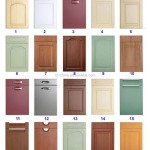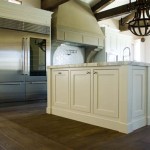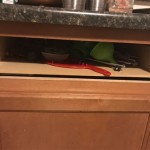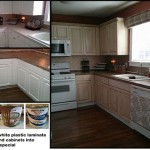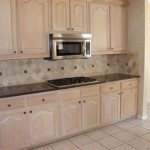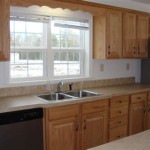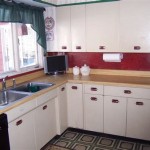Soffit Over Kitchen Cabinets: An Essential Guide
Soffits are an essential part of a kitchen's design and functionality. They provide a finished look to the space while also hiding unsightly ducts, wires, and other utility components. When installed over kitchen cabinets, soffits can create additional storage space, enhance lighting, and improve the overall aesthetic of the room.
In this guide, we will explore the key aspects of soffits over kitchen cabinets, including their benefits, types, materials, and installation considerations. Whether you are planning a kitchen remodel or simply looking for ways to improve your existing space, this article will provide you with the information you need to make informed decisions.
Benefits of Soffits Over Kitchen Cabinets
Installing a soffit over your kitchen cabinets offers several benefits, both functional and aesthetic:
- Concealment: Soffits effectively hide unsightly ducts, pipes, and wires, creating a cleaner and more organized look in the kitchen.
- Storage: Soffits can provide additional storage space for items that are not frequently used, such as seasonal cookware, kitchen appliances, or dry goods.
- Lighting: By installing recessed lighting in the soffit, you can enhance the illumination in your kitchen, creating a brighter and more inviting space.
- Aesthetics: Soffits add architectural interest to the kitchen, creating a more visually appealing and cohesive design.
Types of Soffits
Soffits over kitchen cabinets come in various types, each suited for different design aesthetics and functional needs:
- Flat soffits are the most common type, featuring a simple, flat surface that spans the length of the cabinets.
- Box soffits create a box-like structure around the cabinets, providing additional depth and architectural interest.
- Cathedral soffits are arched at the top, reminiscent of a cathedral's ceiling, adding a touch of elegance to the kitchen.
- Coffered soffits feature recessed panels or moldings for a more decorative appearance.
Materials for Soffits
Soffits can be constructed from various materials, each with its own advantages and disadvantages:
- Wood: Wood soffits are durable, customizable, and can be painted or stained to match the kitchen's cabinetry.
- Drywall: Drywall soffits are an inexpensive option and can be easily painted or textured to match the ceiling.
- Metal: Metal soffits are lightweight, durable, and come in various finishes to complement the kitchen's style.
- Plastic: Plastic soffits are moisture-resistant and come in a range of colors and textures.
Installation Considerations
Installing a soffit over kitchen cabinets requires careful planning and professional expertise:
- Electrical wiring: Ensure that electrical wiring is properly concealed within the soffit to avoid potential hazards.
- Ventilation: Soffits should be designed to allow for proper ventilation of heat-producing appliances, such as stoves and ovens.
- Support: Soffits must be properly supported to prevent sagging or collapse, especially if they are heavily loaded with storage items.
- Height clearance: Consider the height of the soffit to ensure that there is sufficient clearance for appliances and cabinetry.
By following these essential considerations, you can ensure that your soffit over kitchen cabinets enhances the functionality, aesthetics, and overall value of your kitchen.
Your Guide To Building A Soffit For Kitchen Cabinets
Design Alternatives To Kitchen Cabinet Soffits
Remodel Woes Kitchen Ceiling And Cabinet Soffits Centsational Style
Result For What To Do With Soffit Above Kitchen Cabinets Remodel
Soffit Above Kitchen Cabinets Commodore Of Na
How To Build A Soffit Above Kitchen Cabinets
Diy Kitchen Soffit Makeover How To Disguise A Average But Inspired
Kitchen Remodel Soffit Investigation Good News Bad Az Diy Guy
Pros And Cons Of Kitchen Cabinets To The Ceiling Bwc
Kitchen Design Tips For A Perfect Meet Up Of Cabinets And Ceiling
Related Posts

